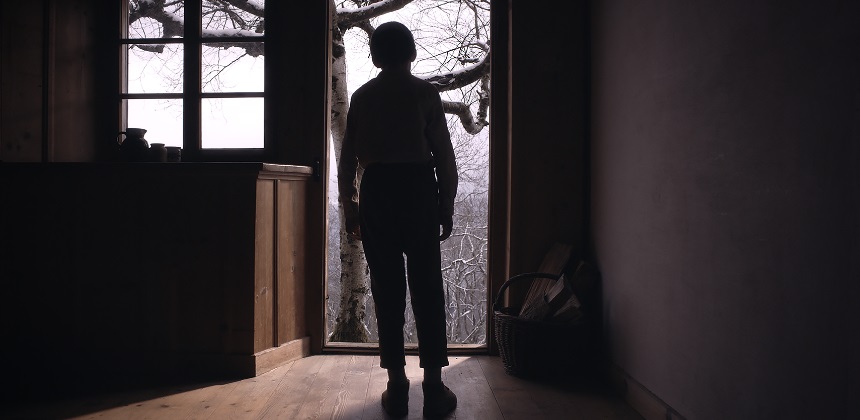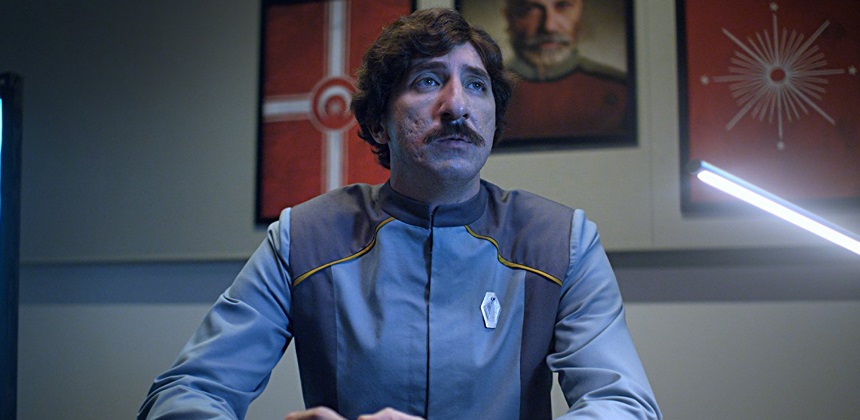Trieste 2017 Review: European Fantastic Shorts (2) Mix Delight with Disappointment

On Saturday November 4, Trieste’s Rossetti theatre once more welcomed short filmmakers from around the world for the second chapter of the European Fantastic Shorts competition.Ten more slices of fiction vied for the top spot but compared to Friday’s lineup, this second round proved rather uneven.
After Joseba Alfaro’s Destroy Madrid kicked things off with a been-there-done-that VFX showcase of a society gone to pot – a proof of concept for a post-apocalyptic feature that feels woefully redundant – Ares Ceylan provided an early highlight with Frail (Puppenspiel), a tragic account of love, loss and the inability to come to terms with an incomplete family.
With almost no dialogue to speak of Ceylan builds intrigue through his shot selection and sound design. From a stark close-up of a young boy shivering in the pouring rain the camera pulls back to reveal the forest house to which he has been sequestered and the overprotective father figure who likes to keep him there. Pretty soon we start to wonder if Ruben is in the care of a parent or at the mercy of a captor. The gruff manner in which he is continuously forced to drink juices, talk among locals of a "soul collector", and secretive clanking in a basement workshop only serve to strengthen this suspicion.
Even though the final reveal is not entirely surprising (especially for those who understand the German title) Frail’s visual storytelling sidesteps emotional overemphasis to reach a climax that touches a nerve.
Unfortunately, following Frail, things took a turn for the worse. Nortik and Astronaut of Featherweight tempted an otherwise respectful crowd to start fiddling with their smartphones. Both shorts were first and foremost audiovisual experiences packed with nonsequiturs, which proved particularly frustrating in the latter case given its bloated runtime of nearly 30 minutes.
A pompous work, Astronaut of Featherweight seemed intent on exposing the poetry of philosophical musings but couldn’t muster more than self-important nonsense along the lines of “anti-gravitational sadness” and “soundproof elegies of a phantom medulla”. Trippy stuff with zero payoff.
Apoptosis (aka Slovenian Soylent Green) and Mayday (psychotic delirium at high altitude) fared better simply for not testing the audience’s patience to the same extent but felt devoid of purpose.

Past the halfway point Mat Johns’ A Father’s Day (pictured above) brought the program back on track with an entry into the overpopulated subgenre of zombie fiction. While the sight of zombies feasting on entrails offered a welcome reprieve from the abstraction that had come before, Johns’ work is not distinguished by the appropriately gnarly levels of gore but rather by asking whether or not the undead can be redeemed and find happiness.
His walking dead are driven by an instinctual hunger rather than malevolence and when a male zombie spots a child sizing him up he stops chomping as if a residual memory is triggered. In a world of death, decay and disease a family is reunited in the afterlife to make the most of it. A rousing musical moment is too eager for our emotional investment but A Father’s Day provides a heartfelt riff on the notion that, maybe, we are not so different after all.
More straightforward than A Father’s Day is Kjersti Helen Rasmussen’s Voyager. Her directorial debut takes its title from the 1977 interstellar mission that sent a spacecraft on the search for extraterrestrials. Launched with greetings in 55 languages, Rasmussen’s work imagines the alien response. There are no surprises when a bearded fellow shows up at The Global Seed Vault in Svalbard but well-chosen shots meet an unnerving sound design in this eminently watchable hybrid of sci-fi and eco-horror. All things considered Voyager is a trip to the icy norths that delivers proper chills.
Since Saturday’s chapter of European Fantastic Shorts was lacking oomph, the programmers of Science + Fiction wisely saved one of the strongest offerings for last. In The Last Schnitzel co-directors Kaan Arici and Ismet Kurtulus transport viewers to a dystopian earth in need of evacuation. On account of endless exploitation mankind’s time has run out but the president of the Grand Turkish Republic won’t allow any space shuttles to take off before his schnitzel cravings have been satisfied. Minor issue: the last chicken died two centuries ago. It is up to Kamil, the president’s assistant, to somehow remedy the situation.
A satirical take on a dictatorship in which a megalomaniacal president puts his own selfish desires before the lives of his citizens was always going to resonate with a western audience that needn’t look far for real-life parallels. The Last Schnitzel’s humorous needling of government corruption could have used more pointed wit but few will be able to resist the manner in which Kamil’s creative thinking is punctuated by a culinary preparation that is pure food porn. Deservedly, The Last Schnitzel ended up winning the European Fantastic Shorts competition.








